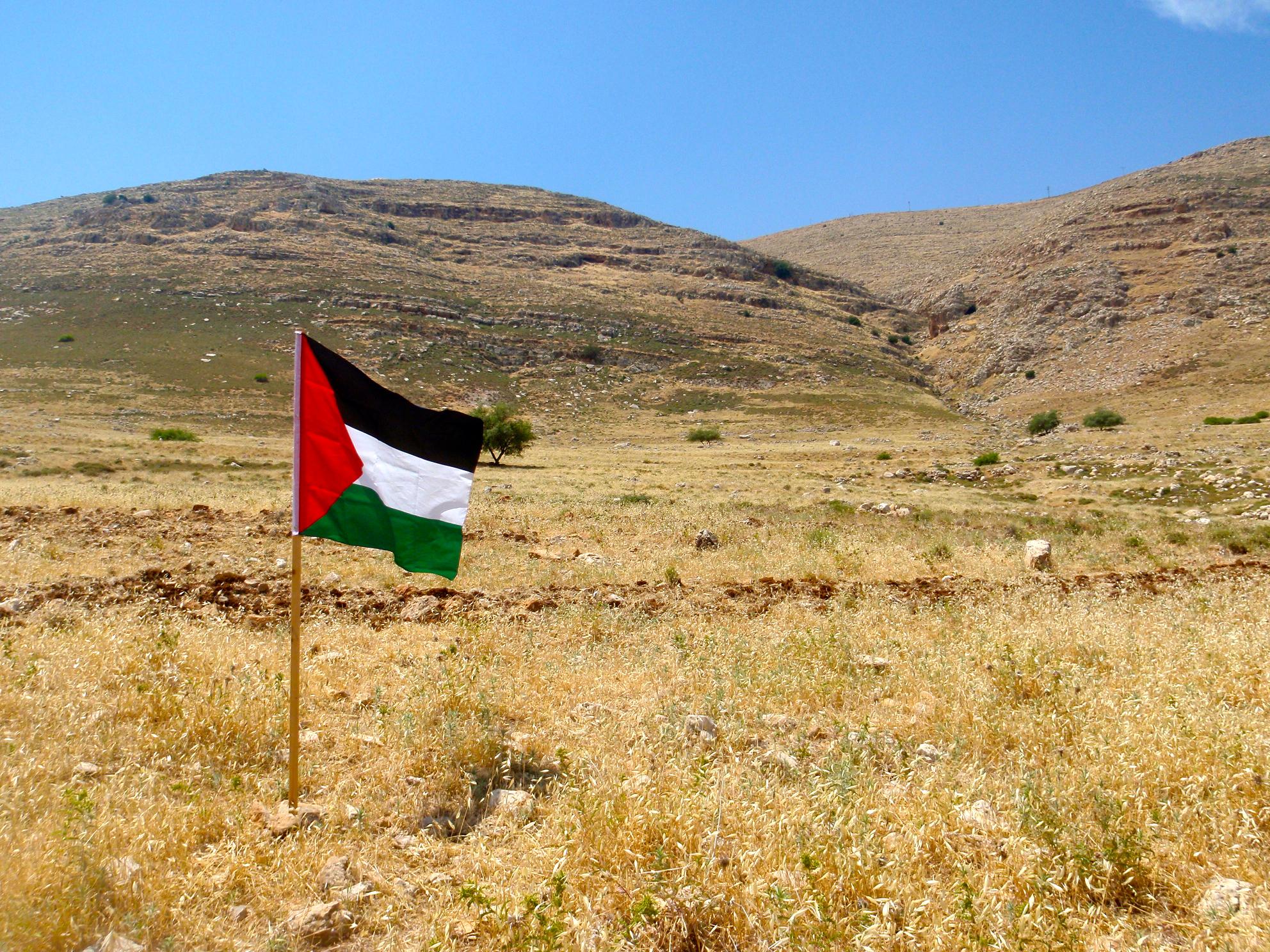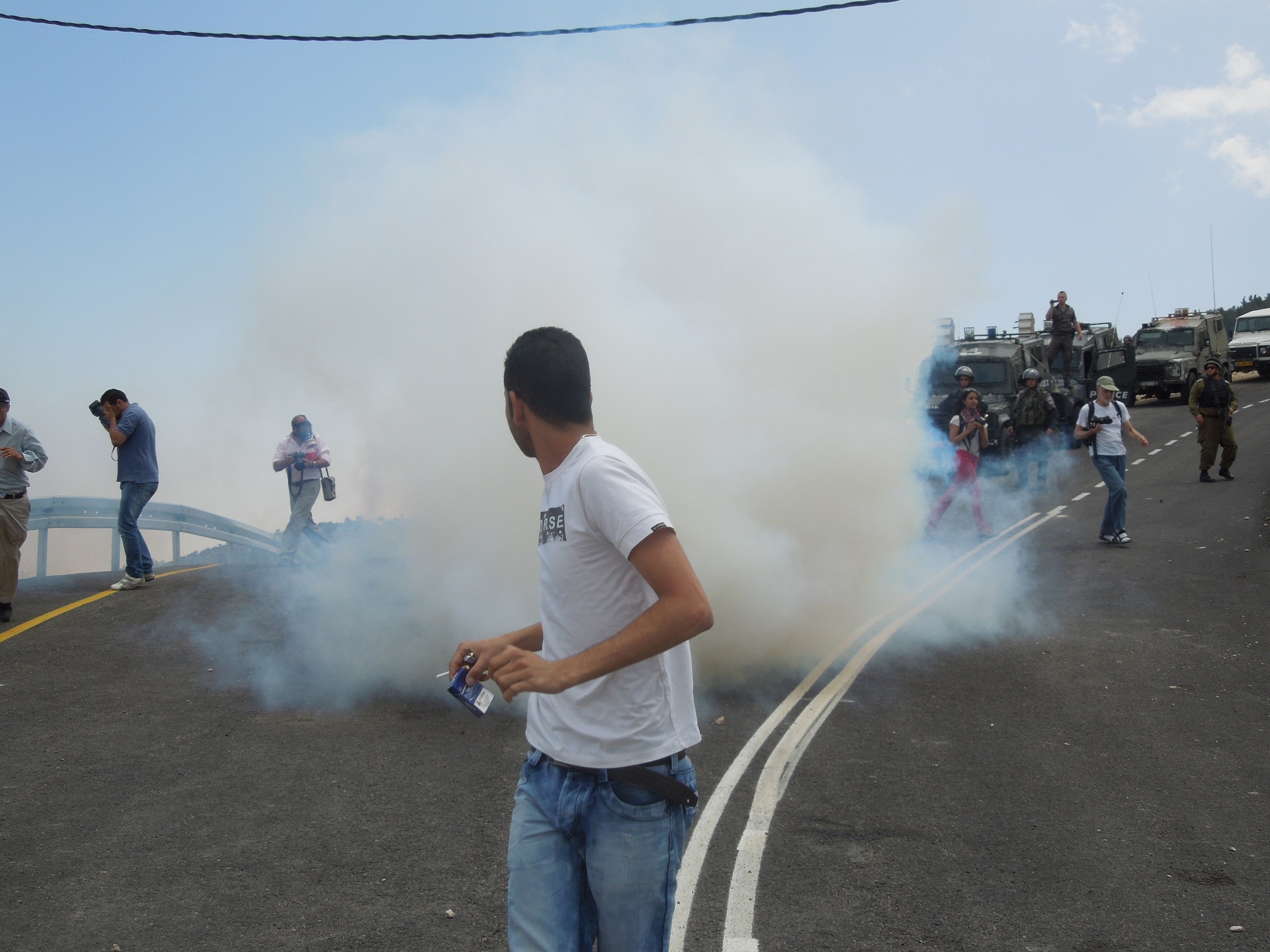-
‘Price tag’ attack in South Hebron Hills
10th May 2013 | Operation Dove, South Hebron Hills, Occupied Palestine On May the 10th at about 6 a.m. some Palestinians from At-Tuwani and two Operation Dove volunteers found out that 62 olive trees had been cut during the night in a field next to the Bypass road 317. On a small wall nearby the […]
-
Village of Azmut organises first demonstration against the Israeli occupation and land theft – settler road blocked successfully
10th May 2013 | International Solidarity Movement | Azmut, Occupied Palestine By Team Nablus On Friday 10th of May, around 60 people from the village of Azmut, near Nablus, supported by 6 international activists, demonstrated against the Israeli occupation and systematic land theft by illegal settlements. The action was successful, but the residents continue to […]
-
Protest against new road block in the village of Al Walaja
11th May 2013 | International Solidarity Movement | Al Walaja, Occupied Palestine By Team Khalil On Friday 10th May, Palestinians from the village of Al Walaja protested against a new road block, placed by the Israeli army in one of the two roads giving them access to Bethlehem. The iron barrier that was placed earlier […]
Action Alert An Nabi Saleh Apartheid Wall Arrests BDS Bethlehem Bil'in Cast Lead Demonstration Denial of Entry Ethnic Cleansing Farmers Gaza Global Actions Hebron House Demolition International law Israeli Army Jerusalem Live Ammunition Nablus Ni'lin Prisoner Ramallah Rubber-coated steel bullets Settlement Settlers Settler violence Tear-Gas Canister Video


